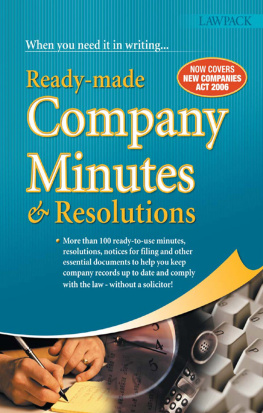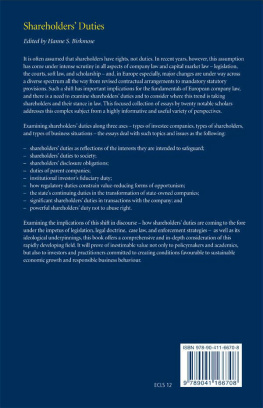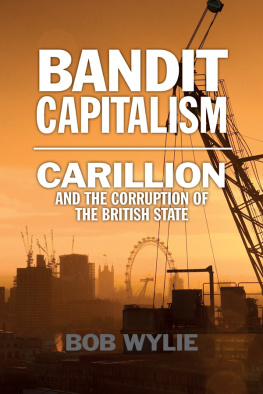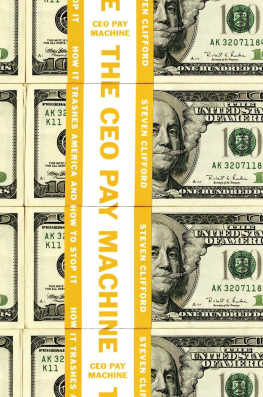John Gillespie - Money for Nothing: How CEOs and Boards Enrich Themselves While Bankrupting America
Here you can read online John Gillespie - Money for Nothing: How CEOs and Boards Enrich Themselves While Bankrupting America full text of the book (entire story) in english for free. Download pdf and epub, get meaning, cover and reviews about this ebook. year: 2010, publisher: Free Press, genre: Business. Description of the work, (preface) as well as reviews are available. Best literature library LitArk.com created for fans of good reading and offers a wide selection of genres:
Romance novel
Science fiction
Adventure
Detective
Science
History
Home and family
Prose
Art
Politics
Computer
Non-fiction
Religion
Business
Children
Humor
Choose a favorite category and find really read worthwhile books. Enjoy immersion in the world of imagination, feel the emotions of the characters or learn something new for yourself, make an fascinating discovery.

- Book:Money for Nothing: How CEOs and Boards Enrich Themselves While Bankrupting America
- Author:
- Publisher:Free Press
- Genre:
- Year:2010
- Rating:5 / 5
- Favourites:Add to favourites
- Your mark:
Money for Nothing: How CEOs and Boards Enrich Themselves While Bankrupting America: summary, description and annotation
We offer to read an annotation, description, summary or preface (depends on what the author of the book "Money for Nothing: How CEOs and Boards Enrich Themselves While Bankrupting America" wrote himself). If you haven't found the necessary information about the book — write in the comments, we will try to find it.
A Bank of America director questioned the CEOs $76 million pay package in a year when the bank was laying off 12,600 workers and found herself dropped from the board without notice a few months later.
According to their employment agreements approved by boards 96 percent of large company CEOs have guarantees that do not allow them to be fired for cause for unsatisfactory performance, which means they can walk away with huge payouts, and 49 percent cannot be fired even for breaking the law by failing in their fiduciary duties to shareholders.
The General Motors board gave CEO Rick Wagoner a 64 percent pay raise to $15.7 million in 2007, when the company lost $38.7 billion. The company went bankrupt two years later at a cost of $52 billion to shareholders and another $13.4 billion to all taxpayers.
If you own stock and 57 million U.S. households do every cent of these outrages comes out of your pocket, thanks to boards of directors who are supposed to represent your interests. Every customer, employee, and taxpayer is also being hurt and American business is being imperiled. In the most recent economic collapse, almost all attention has focused on the greed, recklessness, or incompetence of CEOs rather than the negligence of boards, who ought to be held equally, if not more, accountable because the CEOs theoretically work for them. But the world of boards has become an entrenched insiders club virtually free of accountability or personal liability. Too often, corporate boards act as enabling lapdogs rather than trustworthy watchdogs, costing us trillions.
Money for Nothing exposes the glaring flaws in this dysfunctional system, including directors who are selected by the CEOs they are meant to hold accountable; compensation consultants who legitimize outrageous pay; accountants and attorneys who see no evil; legal vote buying; rampant conflicts of interest; and much more.
Using their extensive original reporting and interviews with high-level insiders, John Gillespie and David Zweig both Harvard MBAs with thirty-plus years of Fortune 100 experience at investment banks and media companies expose what happened, or failed to happen, in the boardrooms of companies such as Lehman Brothers, General Motors, Bear Stearns, and Countrywide and how it has resulted in so much financial devastation. They reveal how the byzantine yet indestructible web of power and money has brought on collapse after collapse, with fig-leaf reforms that feebly anticipate last years scandal, but never next years.
Money for Nothing shows how the game is played, and how you can help to demand real change in a badly broken system.
John Gillespie: author's other books
Who wrote Money for Nothing: How CEOs and Boards Enrich Themselves While Bankrupting America? Find out the surname, the name of the author of the book and a list of all author's works by series.








